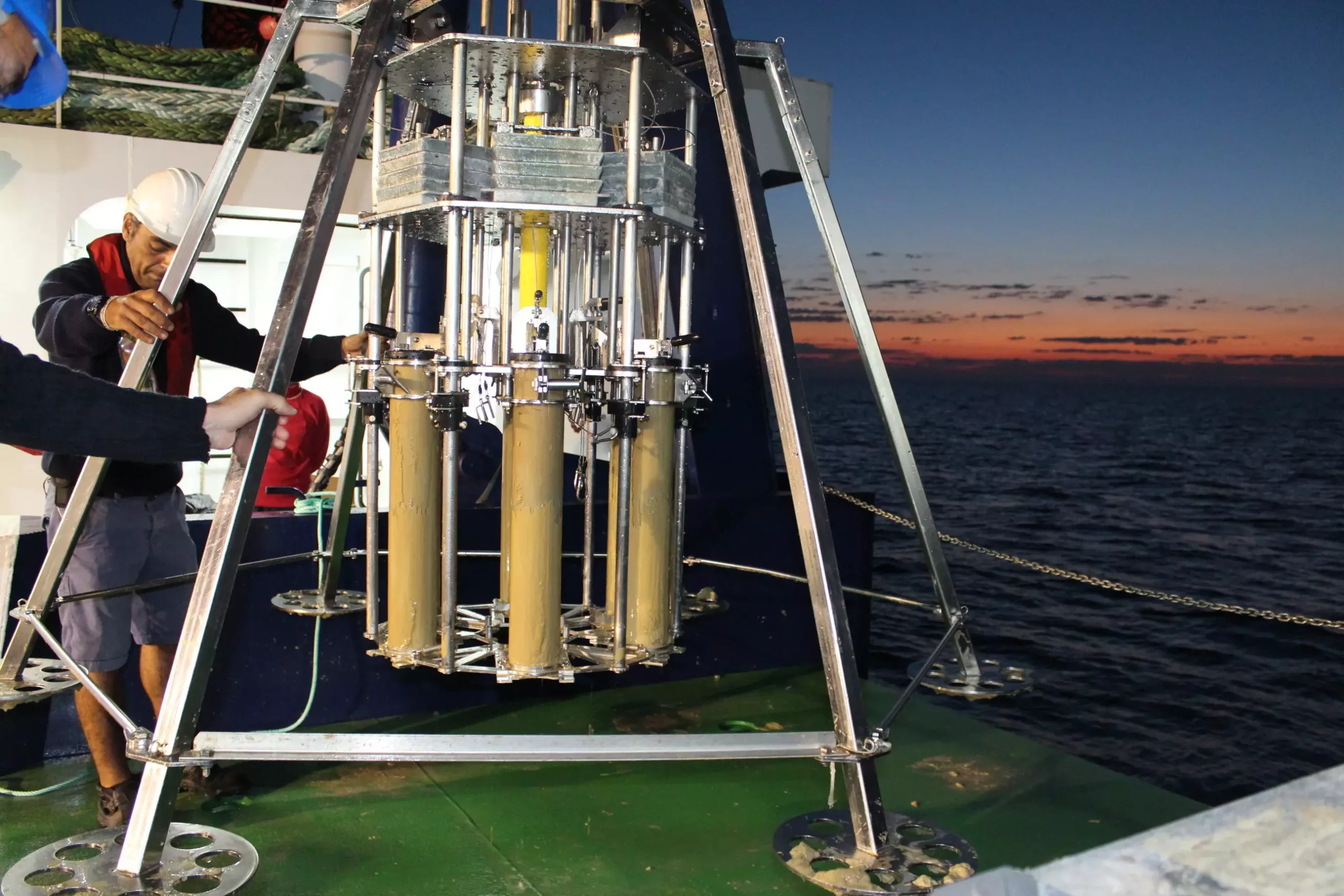The acidification of the oceans caused by human activity is already making a considerable impact on marine plankton shells in the Mediterranean Sea. A recent study conducted by the Institute of Environmental Science and Technology of the Universitat Autònoma de Barcelona (ICTA-UAB) has shed light on the negative consequences of ocean acidification, specifically the decrease in pH of the surface ocean, on the production of calcium carbonate by marine plankton. The study raises concerns about the potential long-term effects on marine ecosystems and highlights the urgent need to address this issue.
Anthropogenic carbon dioxide (CO2) emissions have experienced a rapid increase in recent decades, leading to the acidification of Earth’s oceans. Since the Industrial Revolution, approximately 25% of anthropogenic CO2 has entered the ocean, triggering changes in water chemistry and resulting in a decrease in pH, otherwise known as ocean acidification.
The study conducted by ICTA-UAB, in collaboration with researchers from the University of St Andrews (UK), the Max Planck Institute of Chemistry (MPIC) in Mainz (Germany), and the Spanish Council for Scientific Research (CSIC) in Barcelona (Spain), focused on the Mediterranean Sea. This region is particularly susceptible to anthropogenic pressures and climate change. The Mediterranean waters have witnessed a pH drop of 0.08 units since the Industrial Revolution due to the high alkalinity and rapid circulation of water masses in the basin.
The researchers examined the impact of CO2-induced changes on foraminifera, a type of calcifying planktonic organism. In order to do this, they studied records from various Mediterranean sites, namely the Alboran Sea, off the coast of Barcelona, and the Strait of Sicily, covering a span of two thousand years.
Foraminifera are a crucial type of marine calcifying zooplankton that reside in the upper ocean and are extremely susceptible to climatic and environmental changes. These single-celled organisms construct a shell made of calcium carbonate, measuring several hundred micrometers in size. Despite the shell’s resilience, it is highly sensitive to alterations in seawater chemistry. As a result, foraminifera serve as an ideal tool for examining the long-term effects of carbon perturbations on marine ecosystems. The researchers observed a significant decrease in shell weight during the 20th century, demonstrating the impact of ocean acidification on foraminiferal calcite mass.
The study identified ocean acidification caused by anthropogenic emissions as the primary driver behind the decline in foraminiferal calcite mass. However, it also indicated that ocean warming may partially mitigate this effect. This research confirms the basin-wide transformation in marine calcite production resulting from increased atmospheric CO2 concentrations and acidification of surface waters in the Mediterranean Sea.
The findings of this study can be extrapolated to other calcifying planktic organisms that inhabit Mediterranean surface waters, such as coccolithophores or pteropods. These organisms play a crucial role in atmospheric CO2 modulation. The results suggest that anthropogenic ocean acidification has already adversely affected foraminiferal calcification in the Mediterranean Sea over the course of the 20th century.
Calcifying plankton are integral components of marine food web architecture and biogeochemical cycles. Consequently, continued ocean acidification poses a significant threat to marine ecosystem services, including climate regulation, oceanic ecosystem functioning, and food security. This emphasizes the urgent need to mitigate climate change by substantially reducing CO2 emissions.
The alarming conclusions of this study highlight the severe consequences of ocean acidification on the production of marine plankton shells in the Mediterranean Sea. The research underscores the urgency of addressing this issue to protect the health and stability of marine ecosystems. Failure to take decisive action to reduce CO2 emissions will adversely impact marine organisms and habitats, with far-reaching implications for global climate and food security.


Leave a Reply